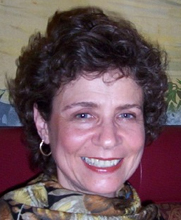 |
|||||||||||||||||||||||||||||||||||
|
|||||||||||||||||||||||||||||||||||
|
Questions & Answers - May 2003
Dear Mary, You have identified the problem: you’re tired. Not only are you suffering from physical exhaustion but from emotional exhaustion as well, called compassion fatigue. Compassion fatigue occurs when you give all you can but still feel it’s not enough and are sure you’re the only one who can provide good care. It’s highlighted by the refusal to allow someone else to help and resenting the caregiving situation. The first step to combating compassion fatigue is to recognize it. The next step is to reach out for help. Hire someone to stay with your mother for a short time when not much personal care is needed. Gradually increase the time as you become more comfortable with being away. Your mother may not like someone else helping but will eventually accept it. Don’t be surprised if she comes to enjoy the company. It’s important to take care of yourself in order to continue to take care of your mother. Compassion fatigue is a forerunner to depression so be proactive and take the necessary steps to prevent it. God Bless! * * * Dear Mary, It is your place to speak up for your father. You have to be his eyes, ears, and mouth so don’t hesitate to voice your concerns. Ask questions. Talk to other residents and their families about the care they’re receiving. If you have concerns, take them to the appropriate staff member in a calm, undemanding, but direct way. Keep a record and expect results. If your concerns aren’t addressed in a timely fashion, go up the chain of command. If you fail to get resolution, or feel the situation is dangerous, call the local Area Agency on Aging and speak to the Ombudsman. The Ombudsman is there to investigate complaints and see that appropriate action is taken. Please don’t shrink from this responsibility, your Dad needs you. God Bless! * * * Dear Mary, I am inquiring if there are any tips to help me with my husband using the toilet. He doesn't seem to get close enough to urinate while standing, just goes all over whenever he is inside the toilet area. I have tried urinals and when I am able to catch him I can help. He has a fear of sitting down and we do have an elevated toilet seat with bars on either side. Outside of cleaning up every time he goes do you have any suggestions? Is your husband able to use, and remember to use, a urinal by himself? If he is, put one on the toilet lid where he can easily reach it. If not, try putting a narrow pail (plastic waste paper type) on the floor in front of and as close to the toilet as possible to catch the urine. A narrow pail takes up less room so is less likely to be tripped over. Anyway you look at it though there will be some clean up involved. God Bless! * * * Dear Mary, I am worried about my mother who is in the late stage of Alzheimer’s Disease. She’s unable to get out of bed, must be fed, and can’t hold her urine or bowels. She can no longer eat regular food without choking, so I’ve been feeding her baby food. Liquids are hard for her to swallow, but easier when I give them with a spoon. I keep her as clean and dry as possible but lately I have noticed red areas on her backside and hips. I’m worried that she’ll get bedsores. How do I prevent them? I don’t have anyone else to ask, as I care for her myself. You sound like a very loving daughter who is doing the best you can with the knowledge you possess. God Bless you for your love and devotion. Right now your number one course of action is to contact her physician and tell him about her condition. She needs a nutritional assessment because baby food doesn’t meet an adult’s dietary requirements. Chances are she’s not getting enough fluids from spoon-feeding and may be suffering from dehydration. Adding poor nutrition, dehydration, and incontinence to immobility will cause skin breakdown very quickly. A professional is needed to do a thorough evaluation. Talk to her doctor about Home Health Nursing or call your local Area Agency on Aging for someone to come out and assess her and your needs. If your mother has decided that no life sustaining measures are to be used, Hospice is available and her doctor should order it, tell him you want their help. It’s time to accept assistance with her care to make the last days comfortable. God Bless! Email Mary: info@gero-resources.com It is illegal to reprint articles, in any format (including emails, websites, etc.), without explicit written permission from the author of this article and / or Empowering Caregivers™ |
||||||||||||||||||||||||||||||||||
|
|
|||||||||||||||||||||||||||||||||||
|
|||||||||||||||||||||||||||||||||||
|
EMPOWERING CAREGIVERS™ is trademarked. All Information on this website is owned by Gail R. Mitchell. This includes but is not limited to the journal exercises, Newsletters and original articles, etc. Permission must be obtained from Gail R. Mitchell for any external use of this material.
© Copyright Gail.R. Mitchell. All rights reserved. |
|||||||||||||||||||||||||||||||||||
